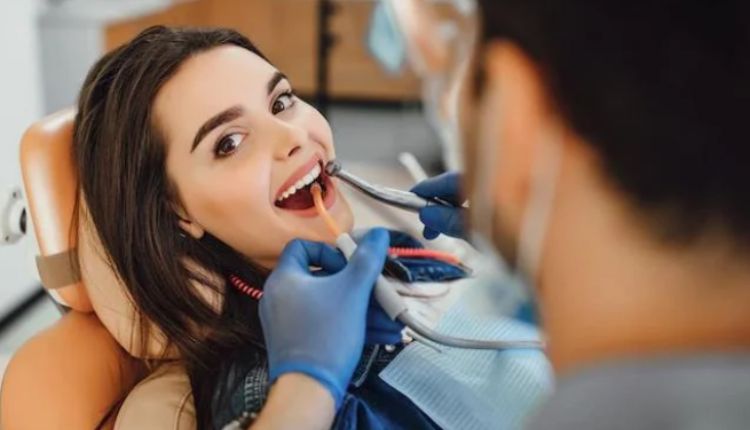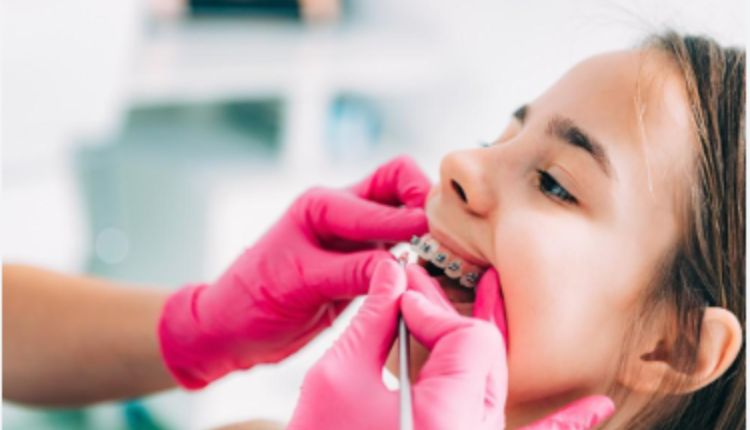Our teeth are one of the most vital aspects of our bodies, and we all adore them. They enable us to eat our favorite foods, improve our appearance, and preserve our overall health. Unfortunately, however, dental problems have become a part of our life as a result of our poor oral hygiene. They are so prevalent nowadays that at least one member of every family is affected in some form.
Cavities, gum disorders, tooth infection, and other dental issues are a few examples. However, tooth infection is a rare yet painful complication of all the difficulties stated.
This infection, also known as an abscessed tooth, occurs at the root or between the tooth and the gums. Because of the pus that accumulates between the tooth and the gums, a patient suffering from this disease experiences a lot of discomfort and irritation. Unfortunately, some people ignore the infection, assuming it will go away on its own, and this is where the trouble originates.
If left untreated, this infection can lead to serious dental problems such as damaged teeth, gingivitis, and various other issues. Our poor dental hygiene is the primary cause of this tooth infection. Most people, especially those who work in offices, eat a lot of junk food and do not wash their teeth adequately during the day. This permits bacteria and germs to build up around the gums, eventually resulting in tooth infection. This virus primarily affects people over the age of 30.
Some of the Signs and Symptoms Are as Follows:
Your teeth become sensitive, and you won’t be able to eat anything hot or cold. It gets tough to even swallow the food.
Mild fever, headache, poor breath, and other symptoms are common. So, what’s the answer to this? Some people recommend going to the dentist, while others recommend trying natural cures. Both suggestions are worth a go. Visiting a dentist is, without a doubt, the best way to treat a tooth infection or any other dental issue. In addition, a visit to the dentist regularly can-do wonders for your oral health. He examines your mouth thoroughly and recommends the finest prescription for you. But, again, some prefer to do things themselves, and there’s nothing wrong with that.
As a result, here are some home cures for a tooth infection. You are welcome to try these, but please seek advice from your dentist first:
- Clove: Forget about tooth infection; clove is the most effective cure for any dental ailment. The antiseptic and antibacterial characteristics of this oil help to relieve toothache and inflammation. Soak a cotton swab in clove oil and place it on the infected tooth for a few minutes. Rinse your mouth with lukewarm water when you’ve completed the procedure.
- Saltwater: This is the most popular and straightforward way to treat a tooth infection. Using salt water to destroy bacteria is a scientifically proven strategy; doing so daily will undoubtedly improve your results.
- Use sesame seeds: Because sesame seeds are antimicrobial, they can be used to cure a tooth infection. In addition, it relieves pain and inflammation.
- Drink green tea: Here’s a nice tooth-whitening solution. Go green and see what happens. Green tea is high in antioxidants, preventing blood clots and naturally fighting bacteria.
The remedies listed above are only a handful of the many home remedies you can apply to cure your tooth infection. Just remember to check with your dentist before attempting any of the cures. Bacteria will cause infection if you are one of the unlucky ones who develop an infection after having a tooth extracted. Even if you have never had an illness, bacteria are more frequent before and after tooth extraction.
Your dentist will tell you not to brush or use mouthwash for the next 24 to 48 hours after an extraction. Because you will not be using the means to kill all of the germs that are currently abundant in your mouth, bacteria in your mouth will be able to run rampant during this period.
Even if the bleeding isn’t severe, make an appointment with your dentist immediately if you encounter bleeding following the extraction in the next 48 hours. Your dentist will prescribe the appropriate medication to halt the bleeding.
Because local anesthesia does not work well with infection, most dentists prefer to treat an infection before extracting teeth. It is more difficult for drugs to numb the area of extraction if you have a serious infection.
The dentist may then elect to utilize IV sedation, popularly known as “laughing gas,” instead of providing a substantial number of drugs to the badly infected area. The dentist can then remove the tooth causing the patient so much pain once he or she has been put to sleep. The dentist’s job is usually made a lot easier due to this.
After the extraction, your dentist will urge you to rinse your mouth with salt water for the next several days to keep the area clean and germ-free.












